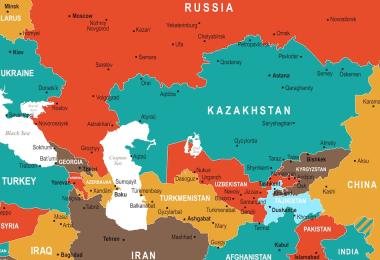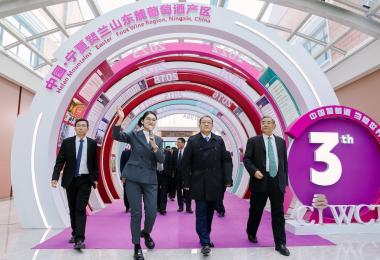Matilde Poggi says that when she began working at her winery, she was a little over 20 years old. At the time, many of her friends didn’t work in paid employment, but were housewives. “Now things are a bit different, but I keep seeing that we as women have always an uphill road,” she says. “We are always judged for things other than our skills or work experience, whereas this never happens to men,” she says. “This always infuriates me and is something that we women have endured for too many years.
One story she tells is that when she became the president of the Italian Federation of Independent Winegrowers (FIVI), her predecessor recommended her to the board by remarking on how well she worked as vice president and how in tune they were. He added, “although she is a woman, she has big balls.”
Poggi says she took him aside to tell him his words were not a compliment. “That’s enough,” she says. “We can’t keep on smiling about those phrases and pretend nothing has happened.”
Many challenges to solve
Matilde Poggi is the owner and manager of the Le Fraghe winery in Veneto. A dynamic woman, she handles both her wine company and FIVI with the same calm effectiveness and decisiveness. This is despite the fact that being a woman in Italian wine isn’t easy – the gender imbalance is real, as are sex-ist stereotypes, to which Poggi is sensitive. Luckily, she says that the members of FIVI are all agricultural entrepreneurs who feel they’re facing the same challenges. “FIVI was founded in 2008, at the invitation of the French Vignerons Independents,” says Poggi, adding that the French wanted Italy to join the Confédération Européenne des Vignerons Indépendants (CEVI), the European association for independent winegrowers. Around 100 Italians joined initially, under the presidency of wine producer Costantino Charrere. “From 2008 to 2010 I attended the council as a representative of my area, Bardolino,” which is close to Lake Garda. In 2010 Poggi join the board where she was immediately elected vice president, and then she was elected president for the first time in 2013, before being elect-ed again in 2016 and 2019.
To date, FIVI has about 1,300 members from across Italy, who between them hold about 13,000 hectares of vineyards, of which 51% are organic or biodynamic, with the other 49% using integrated pest management. Between them they produce almost 95m bottles, with a turnover of close to €0.8bn, and an export value of €330m.
Poggi says her uncle was in charge of the family winery, while her father, who was co-owner, dedi-cated the weekend to it. She still remembers her childhood when she and her siblings and cousins would help the adults to harvest the grapes each autumn. Poggi continued to help out throughout university, where she studied economies, and when she finally asked her father to let her manage the vineyards, he agreed. That was in 1984. Today, Le Fraghe winery has 30 hectares of organic vine-yards planted with five grapes: Corvina, Rondinella, Cabernet Sauvignon and Cabernet Franc in the reds, plus Garganega. Her annual production is about 150,000 bottles and around 60% are exported to the USA, Canada, Australia and other European countries, with the major European market being France; Poggi is particularly proud of this, and says she conquered France with her Rodon rose, a Chiaretto di Bardolino DOC. She says she did not create it specially for the market. “Absolutely not,” she says. “One-third of the wines drunk in France are pink, so I proposed a wine that the French are used to drinking. Chiaretto is part of the tradition of our denomination: that rosé wines are now in fashion benefits us, but we have invented nothing new.”
Authentic approach
Poggi is clear that she does not create wines to satisfy the whims of the market. “Something that I learned from my first experiences in the winery is that you have to work with what you have. Those grapes, those vineyards, and that position are yours alone – and that’s it.” She says it’s a mistake to try and spot market trends. “You cannot keep up with trends in our sector. A vineyard must last 30 to 40 years. It’s crazy to think of grubbing it up after a few years, and starting from scratch with new varieties just because they are more in demand. It is you who must set the trend, staying true to your style”.
She believes that a denomination of origin is the true expression of what a land can give – changing production rules every few years according to the tastes of the moment brings the risk of losing identity. That doesn’t mean, however, that she is a conservative producer. In 2008 she began to bottle under screwcap for almost all of her wines, regardless of what the traditionalists say. “I want to preserve, as much as possible the freshness of my wines, especially Chiaretto and Camporengo, which, being rosé and white, are enhanced by fresh and fruity notes,” she says. “The screwcap is perfect for that”.
In her role as president of FIVI, her biggest battles have been against bureaucracy. “Our wine world is immersed in a paralyzing forest of rules, laws and norms,” she says. “We wrote a document which laid out, point by point, the bureaucratic burden that afflicts the small winemaker as well as the big producer,” Poggi says the ultimate goal is to make life easier for small producers. “The big difference between us and the other players in our supply chain is that from the vineyard to the bottle, the person in charge of everything is always the same. That way, traceability is granted. With this in mind, we have drawn up proposals to simplify the life of the producer.” Many of the points have been taken up as laws in the Italian Single Text of Vine and Wine, a simplification of Italian wine laws that was adopted by Italy’s parliament in 2017. “We are very happy with this outcome,” she says.
The challenges aren’t over, however, as the pandemic is testing everything about the Italian wine industry. “It’s a troublesome situation for all of us,” says Poggi, pointing out that the main sales channels for small producers are the on-trade, cellar door sales and wine tourism. “With wine tourism, we have direct contact with wine lovers and build up a loyal clientele. If those channels stop, the problems for going on are serious, because export isn’t enough.” She says that FIVI has asked the government to simplify distance selling laws. “At the moment, we can sell the bottles in our winery, but if foreign customers re-order we can’t send the bottles to his or her country unless we are willing to pay very high costs for customs formalities,” as transport costs are prohibitive.” Unfortunately, it’s difficult to find a solution that fits all the European countries and their different laws and rules. But we don’t give up – we keep working on it.”
As Poggi says, the fight against bureaucracy is like the fight against sexism – it never ends.








